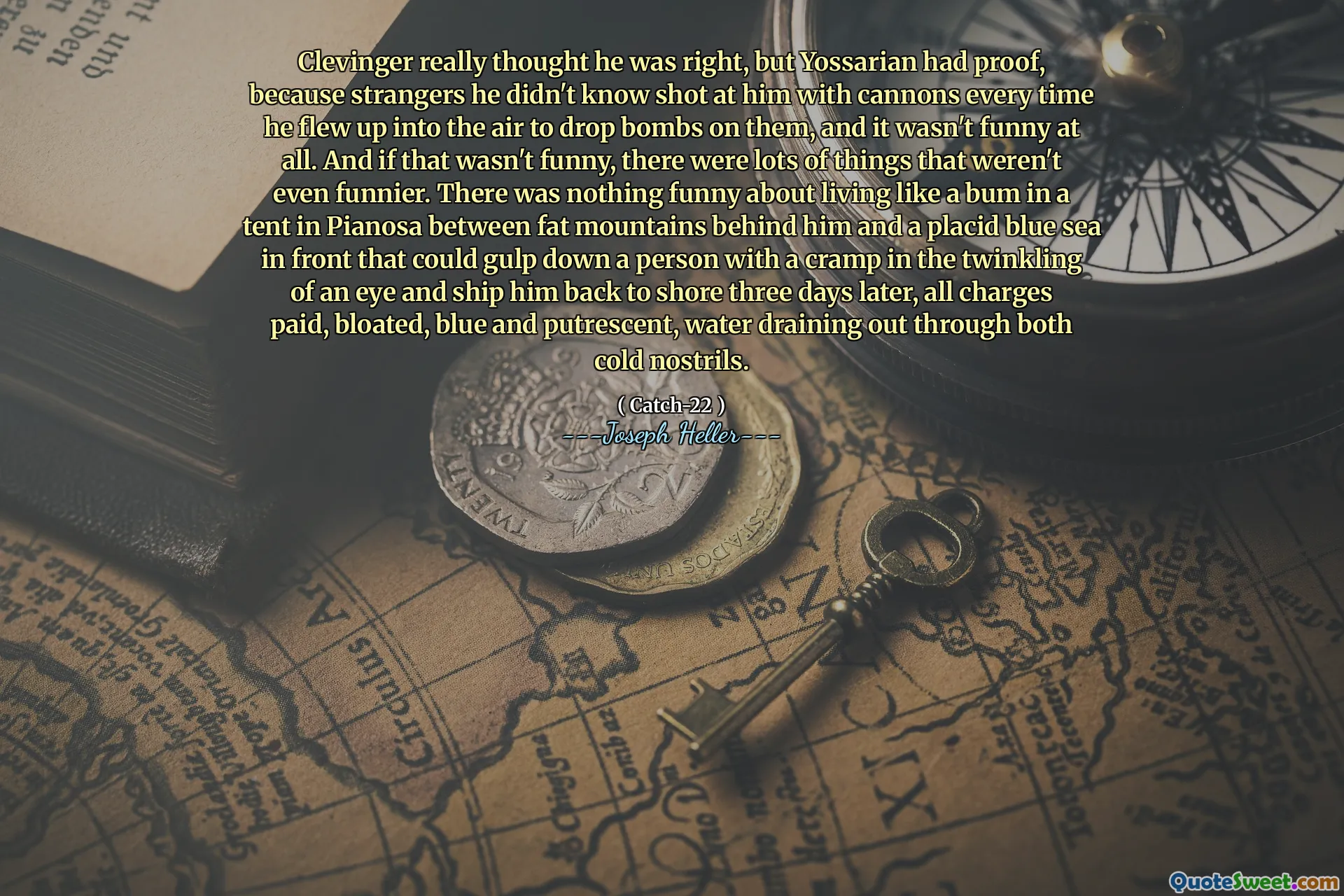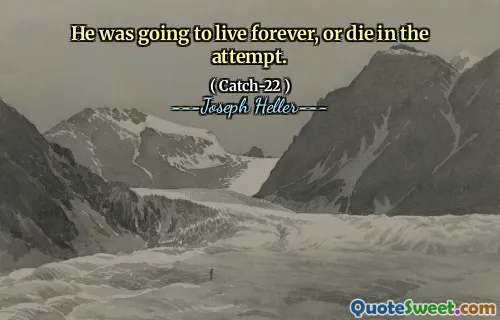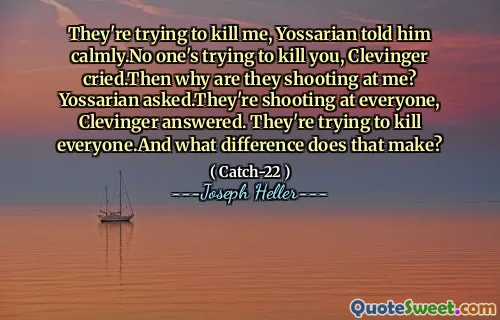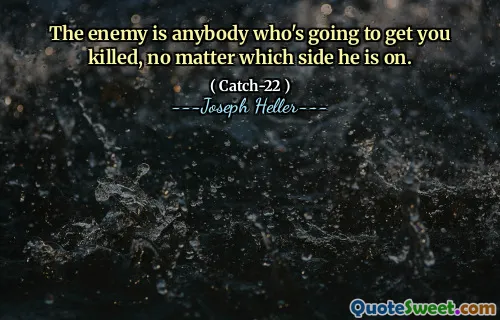
Clevinger really thought he was right, but Yossarian had proof, because strangers he didn't know shot at him with cannons every time he flew up into the air to drop bombs on them, and it wasn't funny at all. And if that wasn't funny, there were lots of things that weren't even funnier. There was nothing funny about living like a bum in a tent in Pianosa between fat mountains behind him and a placid blue sea in front that could gulp down a person with a cramp in the twinkling of an eye and ship him back to shore three days later, all charges paid, bloated, blue and putrescent, water draining out through both cold nostrils.
In the narrative, Clevinger firmly believes in his perspective, while Yossarian counters this with undeniable evidence of the absurdity surrounding them. Strangers, armed with cannons, target Yossarian every time he ascends into the air to fulfill his bombing missions, illustrating the dangers of war and challenging Clevinger's sense of righteousness. This highlights the chaotic and life-threatening situation they are in, emphasizing that the humor often associated with war is starkly misplaced.
Yossarian's existence is depicted as grim, living in a tent surrounded by daunting mountains and a deceptively calm sea that poses a lethal threat. The imagery of the sea potentially swallowing him and returning him in a grotesque state underscores the harsh reality of their environment. There is nothing amusing about the struggle for survival in such conditions, and the text captures the tragic absurdity of war where humor fades in the face of real danger and despair.











